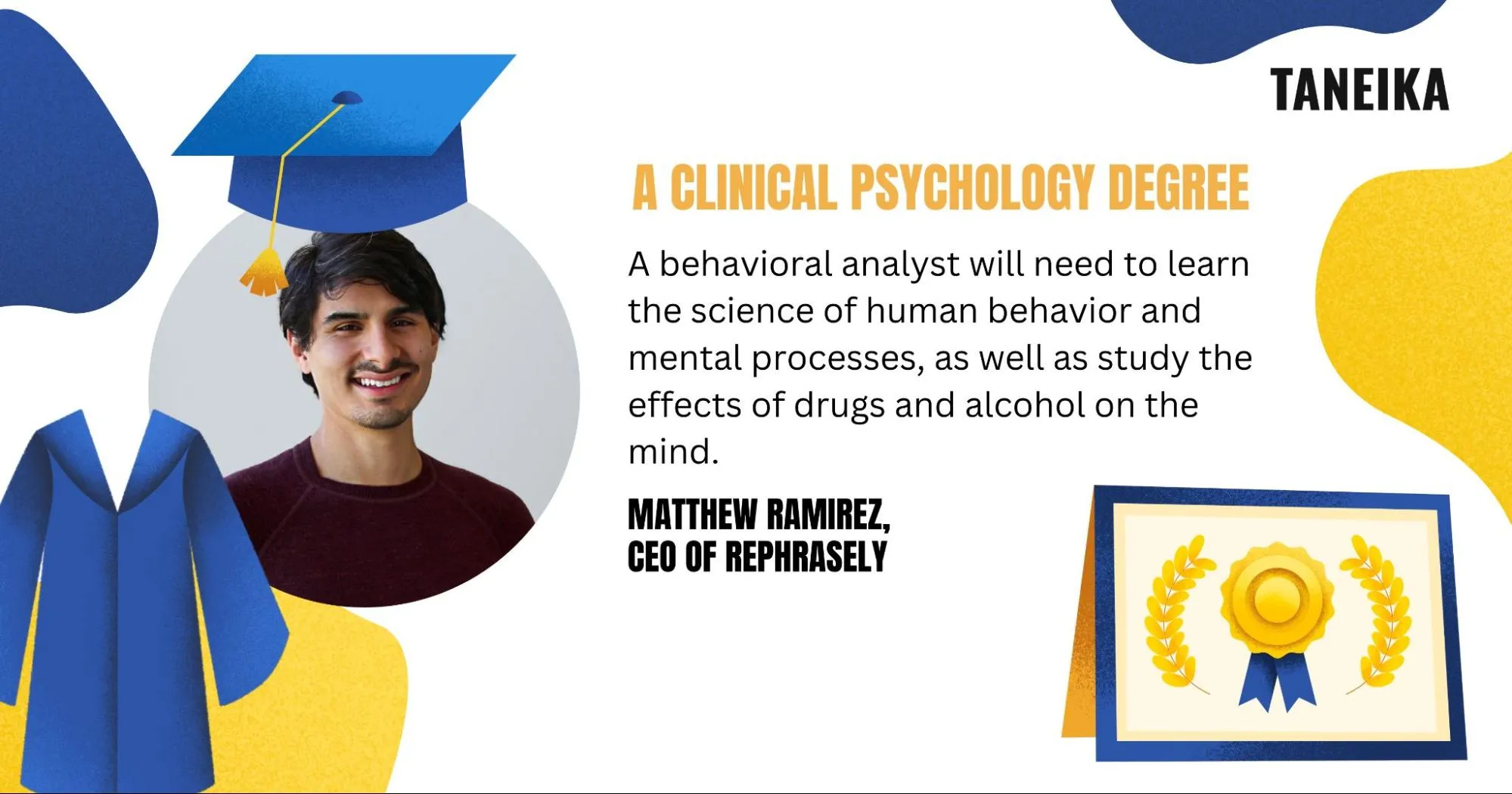What degree do you need to be a behavioral analyst?
From a clinical psychology degree to a Master’s of Science in Applied Behavior Analysis, here are four answers to the question, “What degrees could you get to be a behavioral analyst?”
- A Clinical Psychology Degree
- A Master’s in Behavior Analysis & Therapy
- A Degree in Education
- A Master’s of Science in Applied Behavior Analysis
A Clinical Psychology Degree
There are many colleges and universities offering graduate degrees in clinical psychology.
A behavioral analyst will need to learn the science of human behavior and mental processes, as well as study the effects of drugs and alcohol on the mind.
Analysts will also need to be well-versed in theories and techniques of counseling, therapy, and the many ways to measure and observe the behaviors of humans.
Matthew Ramirez, CEO, Rephrasely

A Master’s in Behavior Analysis & Therapy
One degree you could get to become a behavioral analyst is a bachelor’s degree in psychology or a related field, such as neuroscience or cognitive science.
Another option may be an interdisciplinary Master’s in Behavior Analysis & Therapy (MBAT). This advanced degree combines both theoretical and applied aspects of behavior analysis with clinical experiences, such as working with clients on mental health issues like anxiety or depression.
By combining these two areas, MBAT graduates have the skill set needed to develop intervention techniques using evidence-based approaches across many fields of scientific inquiry.
Tasia Duske, CEO, Museum Hack
A Degree in Education
A degree in education is essential for anyone wanting to enter the world of behavioral analysis and its impact on students, young children, and adults alike. A good teaching program provides key courses related to analyzing behavior and crafting innovative lesson plans that make learning enjoyable.
With such a degree, one can then pursue even deeper knowledge within the field of learning disabilities or school psychology by taking more specialized courses in universities and learning institutions.
Achieving a higher level of understanding is essential, as it will lead you to become skilled in correctly diagnosing issues for your patients so that you may properly support them or refer them to other professionals when necessary.
Ludovic Chung-Sao, Lead Engineer and Founder, Zen Soundproof

A Master’s of Science in Applied Behavior Analysis
A Master’s of Science in Applied Behavior Analysis (MS-ABA) provides students with the knowledge and skills to evaluate individuals, diagnose behavioral problems, and develop behavior modification plans for those in need.
The MS-ABA focuses on teaching students advanced behavior analysis concepts such as reinforcement and punishment, extinction, stimulus control, and more.
It also provides instruction on how to create and implement effective behavior management systems in various settings, like schools, homes, and mental health facilities.
Students learn how to design interventions, assess behavior, and interpret data. The MS-ABA also prepares students for Board Certified Behavior Analyst (BCBA) certification.
Becoming a BCBA allows students to practice without supervision in many states and is necessary for individuals who wish to practice behavior analysis independently.
Ben Bašić, CEO, Router IP Net
Submit Your Answer
Would you like to submit an alternate answer to the question, “What is one degree you could obtain to be a behavioral analyst?”